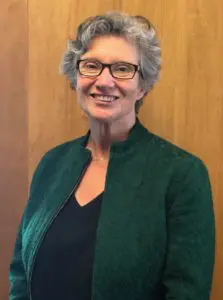 By Linda Jackson
By Linda Jackson
AAI Program Director
My top takeaways from the American Society on Aging’s Aging in America 2019 Conference in New Orleans:
Race, politics and aging: where do we go from here?
#1: Go to other people’s conferences to learn outside your box.
#2: Elevate the voice of diverse older people.
#3 Ask older people what they want.
These are all things we can do today, in our organizations.
National advocacy is still alive. I hear this in different forums: even with the political divide, the work in Washington continues. What’s on the horizon? Prescription drug costs. Paying for health, not healthcare. Brain health. Elder justice. Long-term care. Dental care as part of, and not separate from, healthcare. And reauthorization of the Older Americans Act.
Mobility is inherent to our species. Accessibility is inherent to our setting. Autonomous vehicles may not be the panacea that promoters advertise. Initial studies show that there will be more mobility for younger, older, and disabled people. There will also be more traffic. And completely autonomous cars are still decades in the future.
AARP researchers described a universal mobility program in Denmark, called Flex Danmark. This unified program successfully brought two dozen transit agency CEOs together to use a hi-tech open platform to share costs and services across the country. The CEOs recognized the country had an unsustainable model financially and functionally. The result, Flex Danmark, resulted in cost savings of 20-40% and increased mobility for everyone. AARP is looking for a place in the U.S. to test this model. Maybe in the Bay Area?
The Human Rights Campaign Foundation and SAGE unveiled a new tool to improve the experiences of LGBTQ older adults as they seek long-term care and services. Want to ensure that your residential facility provides equitable and inclusive care? Check out Long-Term Care Equality Index.
West Health Policy Summit’s blunt facts about America’s healthcare system: the U.S. ranks #1 in healthcare cost per person out of 36 OECD countries, yet 56% of Americans believe we have the best healthcare in the world. As Tim Lash of West Health (BOOKMARK THIS SITE!) put it, “U.S. healthcare today is a theft of three generations.” Seniors are selling their homes to pay for healthcare; workers are quitting at 50 be a caregiver for their parents; and younger people do not have the health insurance they need and deserve. “The healthcare crisis has become personal for all of us.”
Song for our times? One moderator asked his panelists (national leaders working in public policy advocacy) for a song or movie that represented these years. Here are the answers:
- Dark Knight Rises
- Runaway
- Matrix
- Silence of the Lambs
- Armageddon
One word: yikes!
The ASA session about “Working Together When You Don’t Speak the Same Language: Collaborative Networks.” Joining me for this AAI-sponsored session were Shirin Vakharia from Marin Community Foundation, Lee Pullen from Marin’s Aging & Adult Services, and Joe O’Hehir from Whistlestop. Our message was that when we work as a collaborative network, both larger and smaller organizations develop a broader vision of their work, share resources and build greater capacity to make those innovations that have better results.
We each shared a word that meant something unique in our own professional niche: vision, collaboration, decision process, and advocacy.
So be careful out there! In a cross-sector, anti-silo environment, we must not assume we are all using the same vocabulary. In the end, it’s this diversity that makes us stronger as a collective effort.
Til next time,
Linda


